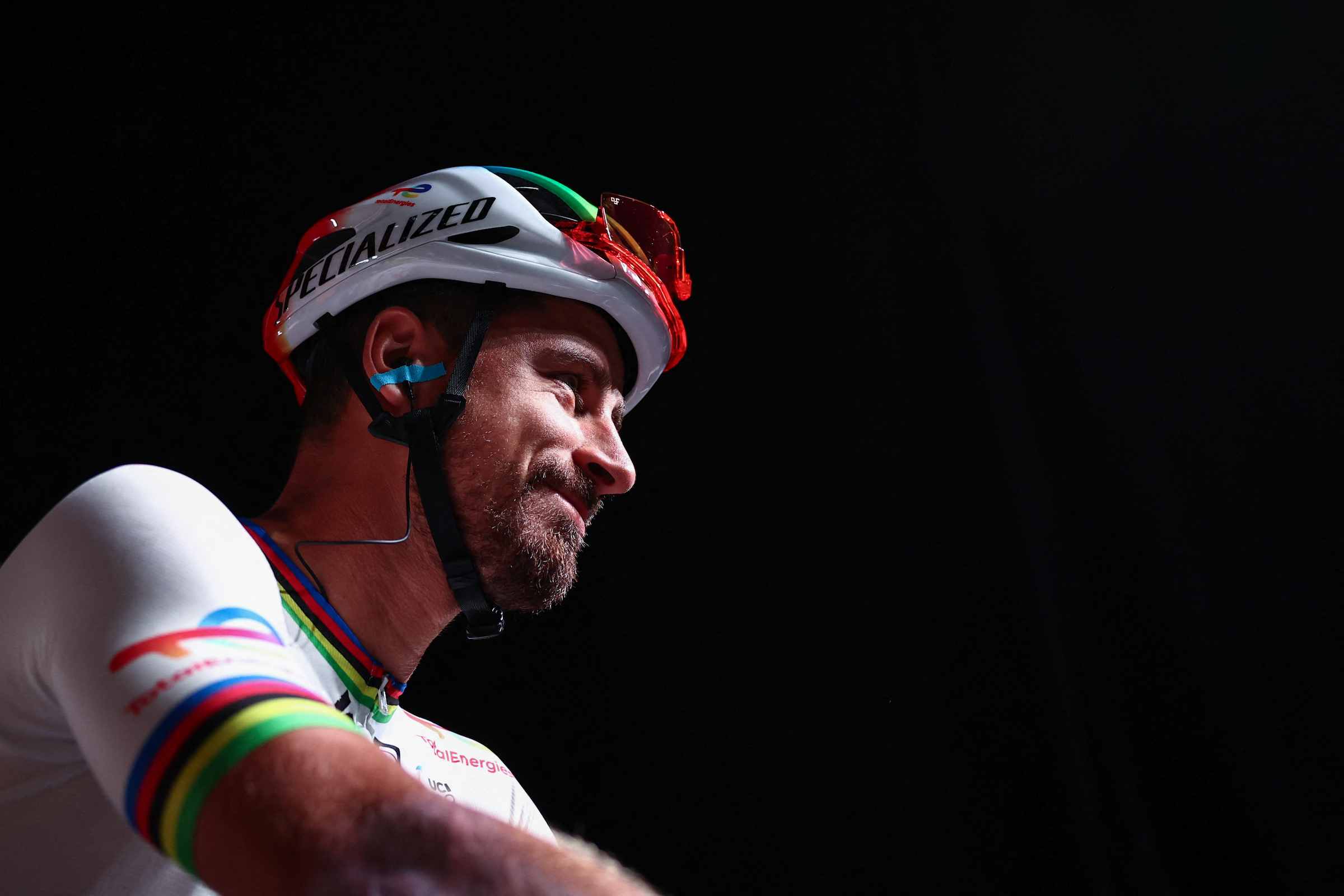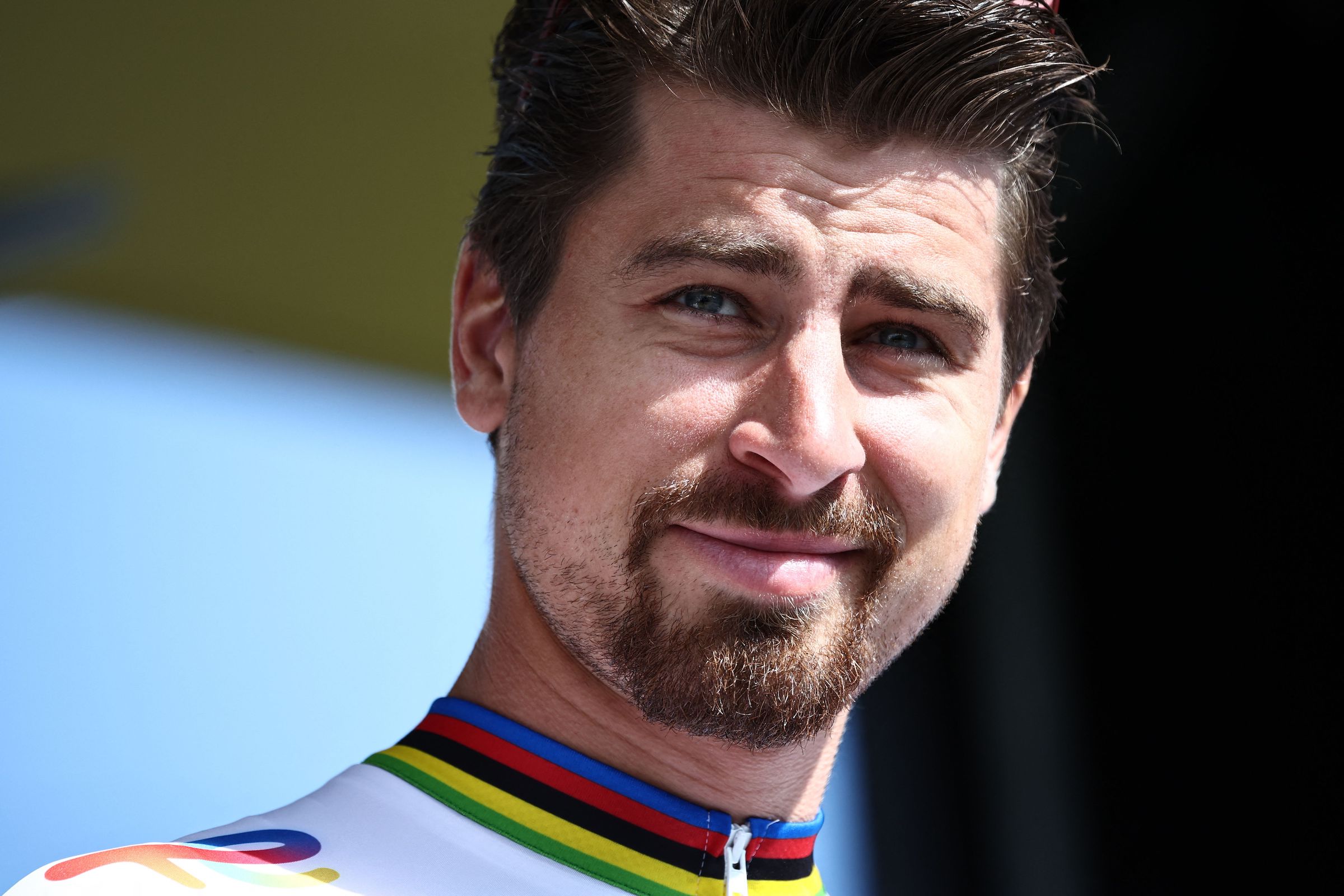
There was no public pomp and ceremony when Peter Sagan came to a stop on the Champs Élysées in July, after completing the final Tour de France of his career.
It seemed odd given the Slovakian's contribution to the race and to road cycling in general.
For the better part of a decade, Sagan was a force unto himself on the road – one man with the same stature as all of Team Sky. At the Tour de France, he became synonymous with the green jersey, winning it a record seven times.
The cycling world were fascinated by his eccentricities and adored his mono-wheeling flair and riding ability. Rivals refused to work with him, such was his strength. But Sagan always found a way, as three world championships, plus victories at Paris-Roubaix, Tour of Flanders, Gent-Wevelgem, and in all the Grand Tours attest.
At the Tour in pursuit of the maillot vert nothing was too big or small – nothing too lofty or beneath him. He'd contest every bunch kick, even with the knowledge he couldn't beat the pure sprinters.
He'd beat the best puncheurs to stage victories. He'd also physically push himself to the point his eyes rolled into the back of his head for isolated intermediate primes on tough terrain and in sweltering conditions when no one else bothered – or could – leave the safety of the peloton for.
Sagan was pictured with a cigar in hand on the Champs Élysées in July, which like him, and the bunch has changed a lot since the 33-year-old first rose to prominence at the race in 2012, when he won three stages and the green jersey on debut.
Then, watching the final stage in Paris was free. Now you're hard-pressed to see the cobbled strip through the VIP and hospitality tents that line out along both sides of the road, the money-making scene resembling a Hunger Games-esque Capitol rather than capital.
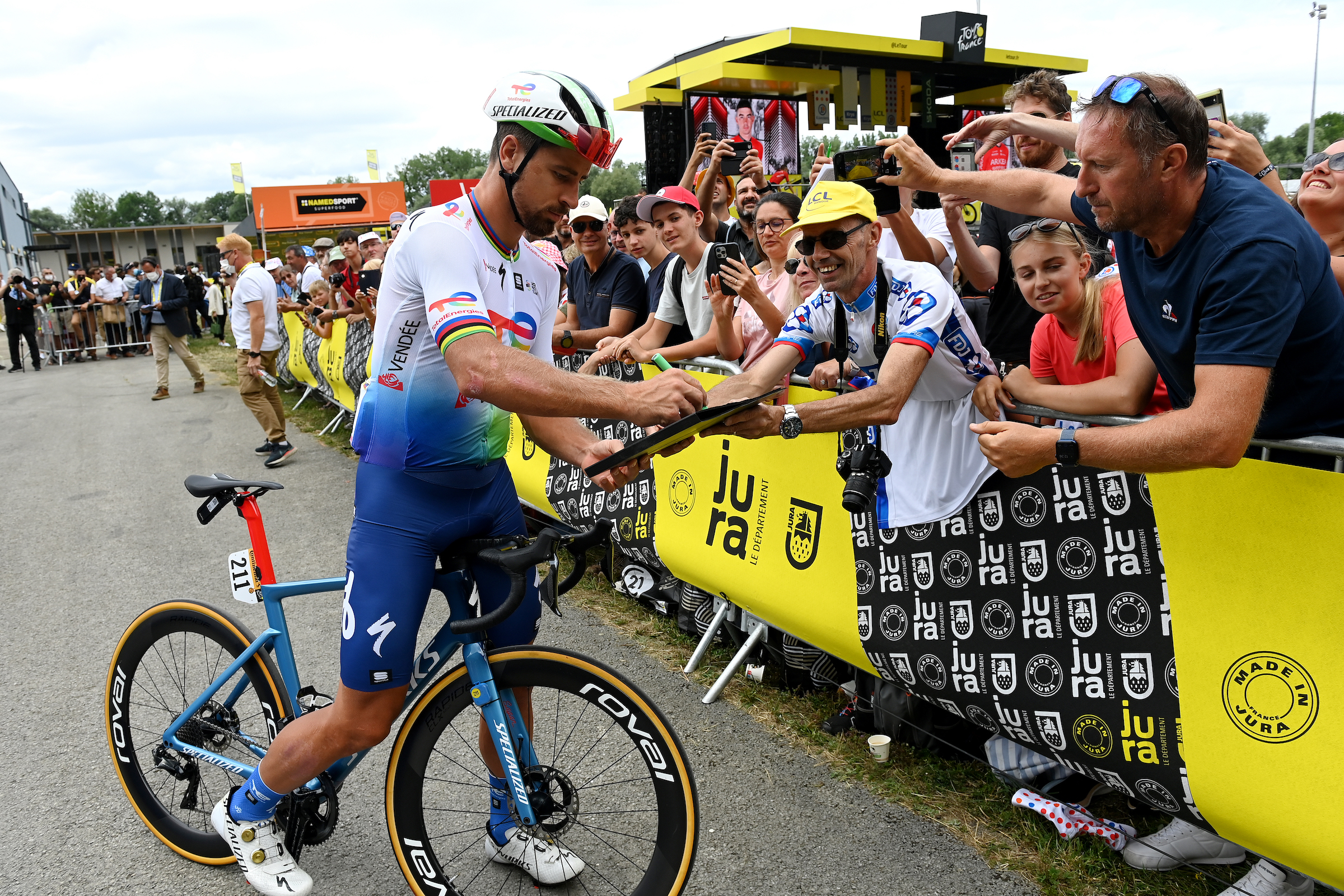
Peter Sagan signing autographs at the Tour de France
His marketing manager Gabriele Uboldi, who Sagan describes as his "right hand", had tipped earlier in the race that the emotions may come when the end neared. But on the Champs Elysees Sagan was blunt.
When Cyclingnews asked if he'd miss the Tour, he said: "Well, as a rider, I think not."
Why was that?
"Try to go that hard how we are going and maybe you understand why."
Fast forward a few months to a luxury hotel in Singapore and his outlook starts to make sense.
Sagan stands out in the lobby of the Mandarin Oriental, where he greets other riders nearby, outstretching his hand.
Uboldi is by his side, but the pair have had no time for parties or making bets that in the past have eventuated in tattoos. He is the only rider not dressed in a team-issue kit, instead wearing black runners, black shorts and a cool personalised black T-shirt. Some of Sagan's most coveted road results are listed on the T-shirt but he's not holding onto or harbouring over what was.
Sagan is unequivocally focused on the "big challenge" that lies ahead of him.
"The new guys are coming and stuff, the road races and road cycling and professional sport is really hard, and I think it's time, after 14 years of my career when I was at the top level, it's time to change, and to clear my mind from all this and just try to do something new," he says.
Sagan concluded his road cycling career with TotalEnergies by taking a ninth-place finish at the Tour de Vendee at the beginning of last month and has had little time to rest at his Monaco home since.
"We celebrate together with the team, but I didn't celebrate really a whole career because like what for? I still continue cycling and I have to be focused for next year," Sagan later tells Cyclingnews.
"I'm not sad I'm finishing on the road. I am more than happy to continue with mountain bike and see if I am able to do something or not."
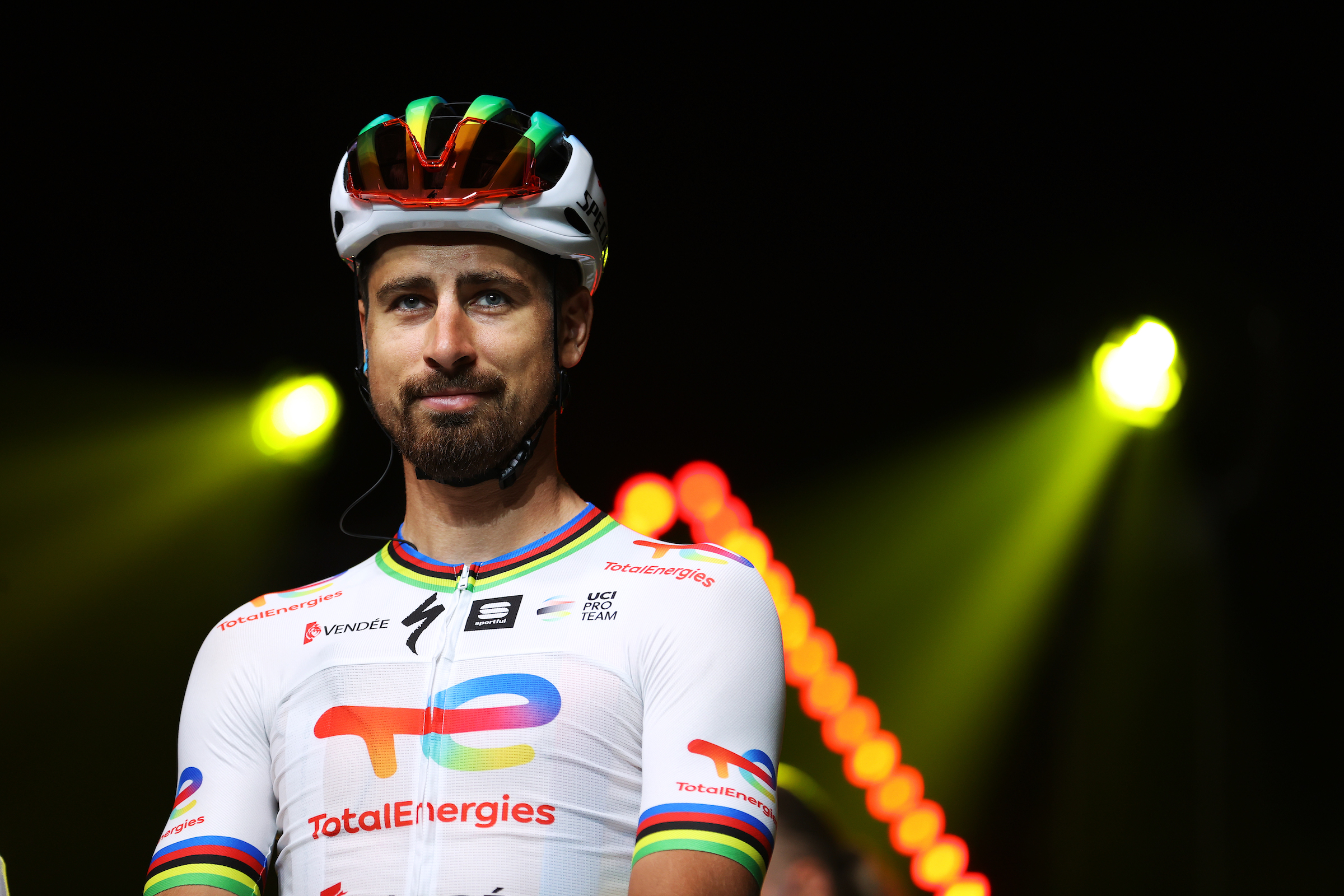
Peter Sagan on stage 12 from Roanne to Belleville en Beaujolais at the Tour de France
"I think it's going to be even harder for me to do mountain bike than road bike because in the end I am used to doing road bike; I know what to expect, I know the training camps, I know what do to, and it was easy because you know every year is the same.
"With mountain biking, I don't know what to expect. I have to train hard, that's for sure."
Sagan featured as part of the TDF Criteriums Legends Team alongside Mark Cavendish, Chris Froome and Giulio Ciccone at the Prudential Singapore Criterium exhibition event on Sunday, and departed the next day for Japan, where he lined up in the Saitama Criterium.
"Everybody [is] thinking that I'm retired, 'You're retired, come here to do this event, come here to do that event,' but I said I'm not, I have to prepare myself for different things," Sagan says. "It's not like it's over or something and now I'm on the sofa … It's definitely not like that."
Sagan hopes his move into mountain bike with the Specialized Factory Racing Team will include an appearance at the Paris Olympic Games next year.
"The mountain bike is really kind of a mixed sport and it's a big effort what you have to do for one-and-a-half hours. You go full gas. I have to practice a lot of the technical things, I have to be better in downhills and the technical, you know, trails and the technical areas that on the road you never practice because you are always on the road.
"You can be a good downhill guy on the road bike but in mountain bike, it's totally different and you are using all the body. For sure I have to do much more in the gym and practice also upper body and stuff."
Sagan's biggest challenge when it comes to the Games though is qualifying and he's up against the clock.
The qualifying process started May 7 last year and runs to May 26 next year. He and his team are currently working on a schedule that will provide the best opportunity to gain the points necessary to do so.
"For now, Slovakia is not qualified for the Olympic Games because nobody's in the level to compete in the world level," he says.
"Like, when I got to Rio de Janeiro it was one guy from Slovakia, he did all small races to get the points for the Olympic Games and after we had one place for the Olympic Games.
"I wanted to do the Olympic Games, it was easy to make some points and we had a place for the Olympic Games, you know, but this year is different because Slovakia didn't qualify and it's not really much time to make points to qualify Slovakia. That's the thing. Nobody in Slovakia is now really competing for points."
Sagan has another event after Saitama before his first mountain bike training camp and the start of his final season of racing.
From April, the World Cup races will fill on his agenda and his mind but how many races he may have to do in order to qualify for the Paris Olympic Games is unknown.
He will need every point possible if he is to qualify for Paris.
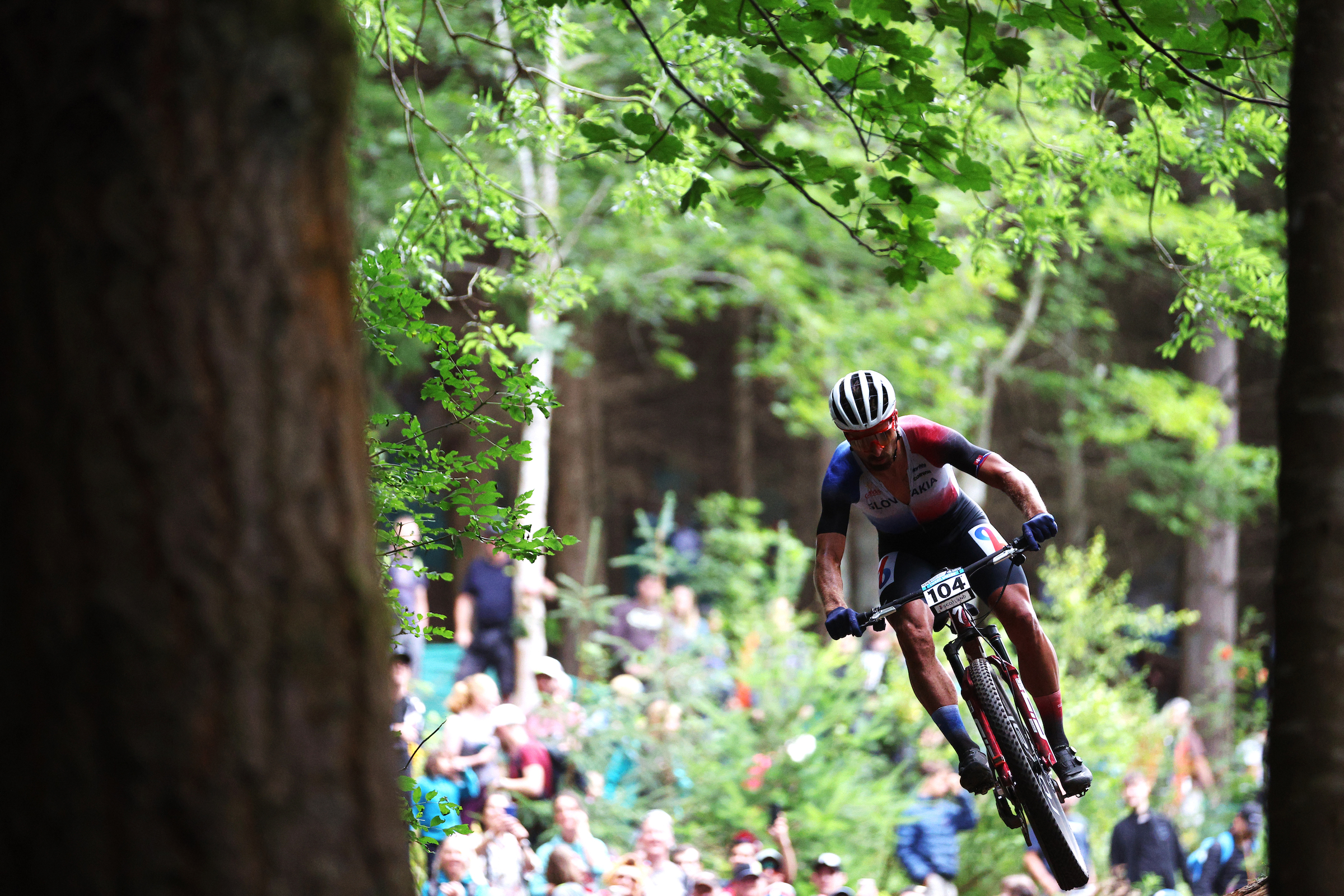
Peter Sagan racing at the UCI Mountain Bike World Championships
"It depends because it's not that sure that every race that I do I'm going to win, it's the opposite way," he says.
"It's going to be hard to take some points, you know. We will see. We have to think well about schedule, what we are going to do.
"I don't have very big expectations for the start of the season for World Cups because for sure I am going to start from the back, and I need to have some points to get in the front, you know, but that can happen during the year," Sagan continues.
"But I'm looking forward to doing a lot of races because every race is, how you say in cycling, the best training is racing, and that's what I have to do."
Road cycling and its routine for Sagan had become stale after so many years at the top. The emergence of new generational talent also coincided with a decline in results. When he's not on the road, Sagan is at home with his six-year-old son, Marlon, who currently plays football and tennis. He rides to school but isn't otherwise invested in cycling and Sagan, after crashing out of Flanders and Roubaix this year and suffering a concussion in the latter, is more than alright with that.
In mountain biking, Sagan, who followed his older brother, Juraj, into the sport, has a new challenge and a new measure of performance to master. On the road, he'll have Uboldi and a Specialized mechanic, reinvigorated.
"The freedom," says Sagan when asked what he loves about MTB.
"You can go almost everywhere. You are in the forest, not on the road in the traffic. You can ride alone, you can ride with friends, you know, you are responsible for yourself. If you do something stupid, you're going to crash. If you are capable to do some downhill and you do not crash, and you just take maybe not more risk but you're getting better and better, you're doing harder and harder downhills at your level, you can see it's improving, and that's something I like."
